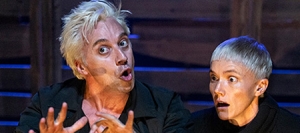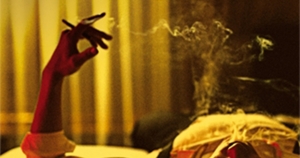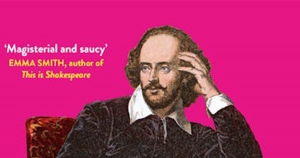Tim Byrne
To celebrate the year’s memorable plays, films, television, music, operas, dance, and exhibitions, we invited a number of arts professionals and c ...
There must be something in the post-Brexit air encouraging British novelists to take the long view. Alan Hollinghurst’s Our Evenings joins recent doorstopper works – from Ian McEwan’s Lessons (2022) to Andrew O’Hagan’s Caledonian Road (2024) – that explore postwar Englishness from a standpoint of jaded retrospection. While they function as a kind of summation or reinforcement of their authors’ talents, they also offer a stinging critique of the nation’s propensities and historical prejudices. It is even possible to discern in the margins a note of contrition, an acknowledgment of the perspectives these writers have overlooked or neglected until now.
... (read more)Tim Byrne reviews ‘Straight Acting’ by Will Tosh and ‘The Hollow Crown’ by Eliot A. Cohen
Shakespeare’s world view – his multiplicity and pluralism, all that teeming vitality crashing up against itself – acts like a tabula rasa even when it is precisely the opposite: one can project oneself onto his work not because it is a blank slate but because it contains multitudes. When it comes to his actual opinions, however – his inclinations and proclivities, his personal, political, and spiritual beliefs – he is notoriously difficult to pin down. One of his greatest skills, after all, is a consummate ability to play both sides of an argument.
... (read more)To celebrate the year’s memorable plays, films, television, music, operas, dance, and exhibitions, we invited a number of arts professionals and critics to nominate their favourites.
... (read more)Michael Fitzgerald’s new novel, Late, opens with a camera obscura, a direct reference to Christopher Isherwood’s Goodbye to Berlin (1939). The image is a nifty one – a portrait projected across the Pacific Ocean, as well as across time itself – and it goes some way to signalling the author’s intentions: he wants to create a novel deliberately weighted by the creative works (films, books, art, and sculpture) that have come before and, for his protagonist – who in real life died on 4 August 1962 – those that have come since.
... (read more)Despite their proliferation, celebrity memoirs often seem incapable of justifying their own existence: a string of carefully curated anecdotes woven together to approximate a life already lived in the glare of the media. Perhaps because actors are on the one hand concealed by the roles they play, and on the other exposed to the prying eyes of the public, their autobiographies tend to inhabit a paradoxical netherworld of disclosure and obfuscation, cautious oscillations on a back off/come hither axis. Both Sam Neill’s and Heather Mitchell’s recent memoirs traverse this uneasy ground, feeding us sometimes incredibly intimate details while remaining stubbornly mute on the larger questions of their careers.
... (read more)To celebrate the year’s memorable plays, films, television, music, operas, dance, and exhibitions, we invited a number of arts professionals and critics to nominate their favourites.
... (read more)'Cyrano: A new adaptation of Edmond Rostand's Classic' by Tim Byrne
In Italian playwright Luigi Pirandello’s Six Characters in Search of an Author (1921), a handful of people enter a stage during a rehearsal and begin to break down the very structures of theatre itself. They question not just the verisimilitude of acting but the essentialism of character, the idea that we are ever any one thing fixed in time. It is a concept that animates Virginia Gay’s free adaptation of Edmond Rostand’s Cyrano de Bergerac (1897): this is a tragic hero who pushes at the confines of their assigned role, daring to imagine not just an alternate ending but an entirely new way of being Cyrano.
... (read more)









